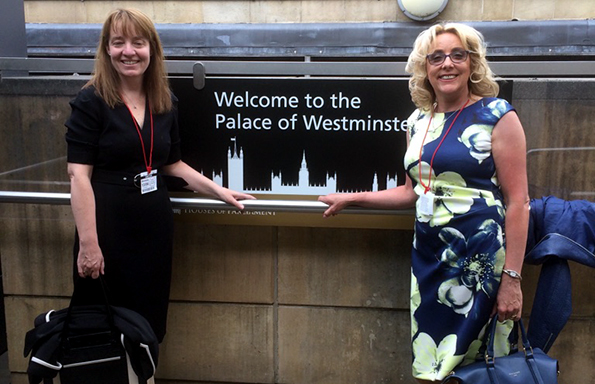The UK’s hospice network must make its services better understood and cease being seen as ‘death houses’, University of Liverpool academics told MPS and Peers.
Dr Philippa Hunter-Jones and Dr Lynn Sudbury-Riley, marketing experts in the University’s Management School, were invited to Westminster to share their research with the All-party Parliamentary Group (APPG) Hospice and Palliative Care Inquiry into Improving Access to Hospice and Palliative Care.
This oral evidence session, co-chaired by Fabian Hamilton MP and Baroness Finlay of Llandaff, focused specifically upon the opportunities and challenges for improving access to care in non-specialist settings.
Hospitals and primary care were centre stage with debates covering inequalities in healthcare, access to specialist services, workforce issues, out-of-hours issues and the benefits of collaborative working.
Dr Hunter-Jones and Dr Sudbury-Riley have been researching the sector for more than four years, generating 1.5million words of data.
Dr Hunter-Jones, a Reader in Marketing, said: “Our research shows there is a misperception of hospices as ‘death houses’, as well as a distinct lack of knowledge regarding the services available to the general public and how these services can be accessed.
“There is also frequent misunderstanding about terms used; for example ‘palliative’, and a lack of emphasis on the importance of care at this life stage for the families of patients, as well as the patients themselves.”
The work of the Academic Palliative Care Unit (APCU), based at the Royal Liverpool and Broadgreen University Hospitals NHS Trust, was held up as a model of best practice.
Dr Sudbury-Riley, a Senior Lecturer in Marketing, said: “Only the day before, we had the pleasure of sharing results with the APCU that they are an exemplar among palliative care service providers, making an extraordinary difference to people at the end of their lives.
“To then hear, within the walls of Westminster, that the unit is held in such high esteem was truly inspirational.”
Both Dr Hunter-Jones and Dr Sudbury-Riley believe hospices must market themselves and their services more effectively in order to improve the experience of end of life care for both patients and families, a view that was well received by the APPG.
Dr Hunter-Jones added: “The challenge ahead is keeping this simple and accessible to all.”
